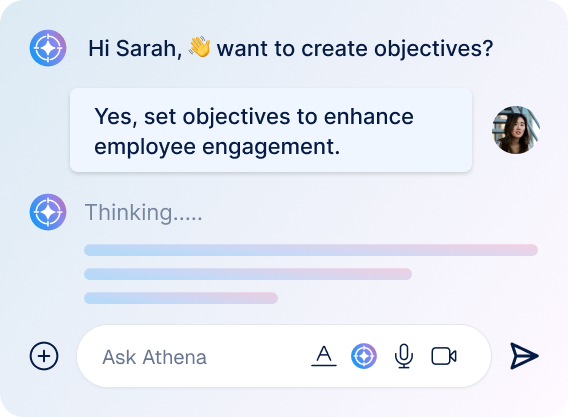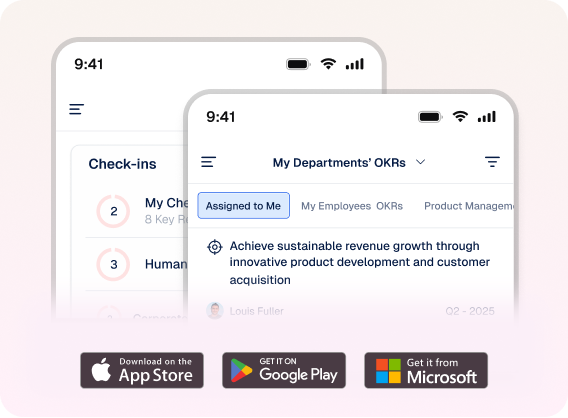What’s Their Role, and Why Should You Care?
Imagine you’re leading a team toward a bold new goal. He ensures everyone stays focused and aligned, not just moving aimlessly or spinning their wheels. Without a strong leader, your OKRs can become forgotten and gather dust, like last year’s abandoned project management tool. So, whether you’re thinking of stepping into that role or wondering why your current OKR program feels like a DIY Ikea project (complicated, incomplete, and about to collapse), this guide’s for you.The Four Pillars of an OKR Captain
To keep your OKR program on track, he must wear several hats. Here are the key roles they must excel in:1. Expert: The Knowledgeable OKR Guide
A strong leader doesn’t just speak about OKRs; they live and breathe them. They have the experience, expertise, and certifications to back it up, and they can confidently answer tough OKR questions.2. Educator: The Trainer and Motivator
OKRs are a new skill for many, and some team members might resist the change. The leader’s role here is to educate and coach the team, explaining what needs to be done and why it matters.3. Enabler: The Master of OKR Execution
The leader is responsible for setting up the program, selecting the right tools (like Profit.co), defining OKR cycles, and structuring teams. They are the architects of your OKR process, ensuring everything is clear, straightforward, and effective.4. Enforcer: The Accountability Leader
Without accountability, OKRs risk becoming just another item on a to-do list. The leader ensures regular check-ins, monitors progress and celebrates meaningful achievements—not just activity. They ensure that the focus stays on the results that truly matter, not just on ticking off tasks.Common Pitfalls and How to Avoid Them
Every leader has strengths and blind spots. The key is recognizing them so you can fix them.1. Strategy-Focused Leaders
Strength: They align OKRs with business goals better than GPS. Blind Spot: They forget that people are humans, not robots. Change management matters. Fix: Make OKRs part of the company culture and show people why they’re doing what they’re doing.2. Process-Focused Leaders
Strength: They love structure, efficiency, and operational rigor. Blind Spot: They get so caught up in workflows that they forget OKRs are about strategy, not checklists. Fix: Connect OKRs to big-picture business goals and ensure people feel engaged, not like they’re just ticking boxes.3. HR-Focused Leaders
Strength: They prioritize employee experience and engagement. Blind Spot: They struggle with standardization and alignment across teams. Fix: Tie OKRs to measurable outcomes and prioritize cross-team collaboration.How to Build the Perfect Leader for Your OKR Program
A great leader blends the best traits of all leadership styles. The secret sauce? A cross-functional OKR team. While the leader steers the ship, strategy folks ensure alignment, process experts keep the wheels turning, and HR leaders boost engagement. This dream team ensures your OKRs don’t become another buzzword.Innovation distinguishes between a leader and a follower.
The OKR Leaders Toolkit
Now that we’ve talked about the “who,” let’s dive into the “how.” The best leader uses tools, frameworks, and rituals to ensure success. Here’s what’s in your toolkit.- Persona Understanding: Know the needs and concerns of different teams. Tailor OKR adoption strategies accordingly.
- Command Employee Trust: If your team doesn’t trust you, they won’t follow you. Build credibility and approachability.
- Master OKR Concepts: You don’t need a PhD, but you must understand OKRs inside and out.
- Culture Ambassador: OKRs should integrate with the company culture and not feel like outsiders.
- Check-in & Review Discipline: Keep things on track with regular progress updates and reviews.
- Program Audits: Regular audits ensure your OKRs don’t turn into a checkbox exercise.
How to Avoid the “Set and Forget” Trap
Setting OKRs is the easy part. What’s hard is following through, keeping OKRs alive, and making them part of daily conversations. Without regular check-ins, accountability, and iteration, OKRs become just another abandoned workplace initiative. Here’s how to keep them fresh:- No one wants complicated OKRs. Stick to clear, actionable goals.
- Small wins matter. Don’t wait until the end of the quarter to give recognition.
- Your first OKR cycle will not be perfect. Learn from it and improve each time.




